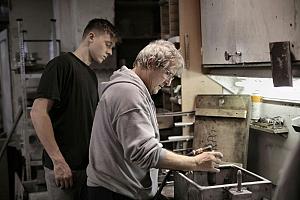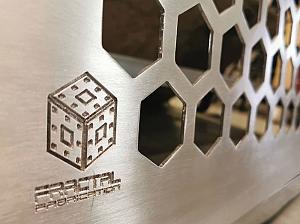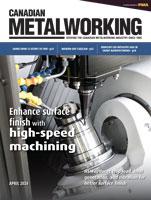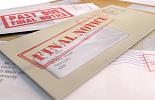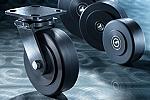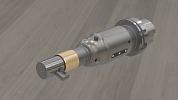Vice-President
- FMA
- The Fabricator
- FABTECH
- Canadian Metalworking
Use your money wisely: part 2
Correctly managing leases, loans, cash flow keeps businesses financially healthy
- By Ken Hurwitz
- November 28, 2018
Q: Can I get a lease if I have bad credit?
A: This depends on why your credit is considered “bad.”
Business owners typically are highly leveraged so their credit score can be negatively affected even if they have a long history of living up to all their obligations and are up-to-date on all payments.
Any funder doing business with manufacturers understands the constant industry pressures on both margins as well as receivables, meaning rarely, if ever, is anyone paid on time. It also helps when the asset is a good brand-named machine tool, because a lender with experience in the industry will recognize that even if the deal goes bad in the first year, the machine will still bring back 60 to 70 per cent of its value.
Q: Is a lease a better option than a loan or just a different option?
When a new piece of equipment is purchased, it usually takes some time to get it installed, set up, and programmed before the owner can make money with it. However, regardless of whether the equipment is being financed with on-hand cash or if a lender is involved, the equipment is paid for upon delivery.
What a leasing company can potentially offer is a program in which the payments are deferred for a few months so the shop owner does not make any payments until the machine is up and running and, most importantly, generating revenue.
Q: What if I lose the work the machine is doing before the lease runs out?
A: Unfortunately, this is no different than if the machine was paid for in cash.
Beyond using the machine for other work, the lessee should ask the funder for a buyout, which will be the balance owed (the remaining payments), and this will essentially become the machine cost.
The next move would be to sell the machine with the hope that the potential selling price will cover the balance owed to the funder. If there is surplus, the lessee will be entitled to this money, but if there is a deficit, the lessee would be responsible for paying it.
If the shop has work but it’s not suitable for this particular machine, another option would be “trading-up” the lease.
In this situation the lessee approaches the original equipment seller, gets a credit for the existing machine, and works out a new lease for the difference. Another way is to sell the machine and use these funds as a deposit against the new machine.
The advantage of the trade-up is that if the machine value is below the actual cost of what is owed, the difference can be added to the new lease, and the lessee does not have to pay it off in cash.
Q: What happens to the machine when the lease ends?
A: At the end of the term, assuming all the payments have been made, the lessee will in fact take ownership of the equipment, so it is in everyone’s best interests to ensure the machine has been maintained and, in the event of a crash, repaired by a properly certified technician.
The structure of the lease itself is set upon signing. This means the purchase option will be either a small value (even as low as $1) or as high as 10 to 20 per cent of the original value of the machine. In either case, the lessee is responsible for the purchase option. A larger purchase option at the end of the lease creates a smaller monthly payment, and even at the end of the term, it is not necessary to pay the purchase option out in cash.
The lessee can choose to move into the “stretch” and continue to make monthly payments until it is paid off, or if the purchase is very large, start an entirely new lease and pay it off over a few years.
Q: What is a good ratio for leased/non-leased equipment on the floor?
A: There isn’t really a ratio per se. What needs to be considered here is how to allocate your working capital most efficiently, and that normally means that money should be spent in places where either there is no ability to finance (consumables and material) or in areas that will produce the greatest return (new product development, labour, property).
My most successful clients use their own money where they get their best return and a lender’s money for capital equipment.
Q: Who is responsible for the maintenance of a leased machine?
A: A leased piece of equipment should be cared for like any other machine in the shop that was bought outright in cash, meaning the lessee is responsible for any and all cost associated with keeping the machine in proper working order.
Ken Hurwitz is senior account manager, Blue Chip Leasing Corp., 416-614-5878, www.bluechipleasing.com.
subscribe now


Keep up to date with the latest news, events, and technology for all things metal from our pair of monthly magazines written specifically for Canadian manufacturers!
Start Your Free SubscriptionAbout the Author

Ken Hurwitz
41 Scarsdale Road Unit 5
Toronto, M3B2R2 Canada
416-499-2449
- Industry Events
MME Winnipeg
- April 30, 2024
- Winnipeg, ON Canada
CTMA Economic Uncertainty: Helping You Navigate Windsor Seminar
- April 30, 2024
- Windsor, ON Canada
CTMA Economic Uncertainty: Helping You Navigate Kitchener Seminar
- May 2, 2024
- Kitchener, ON Canada
Automate 2024
- May 6 - 9, 2024
- Chicago, IL
ANCA Open House
- May 7 - 8, 2024
- Wixom, MI





